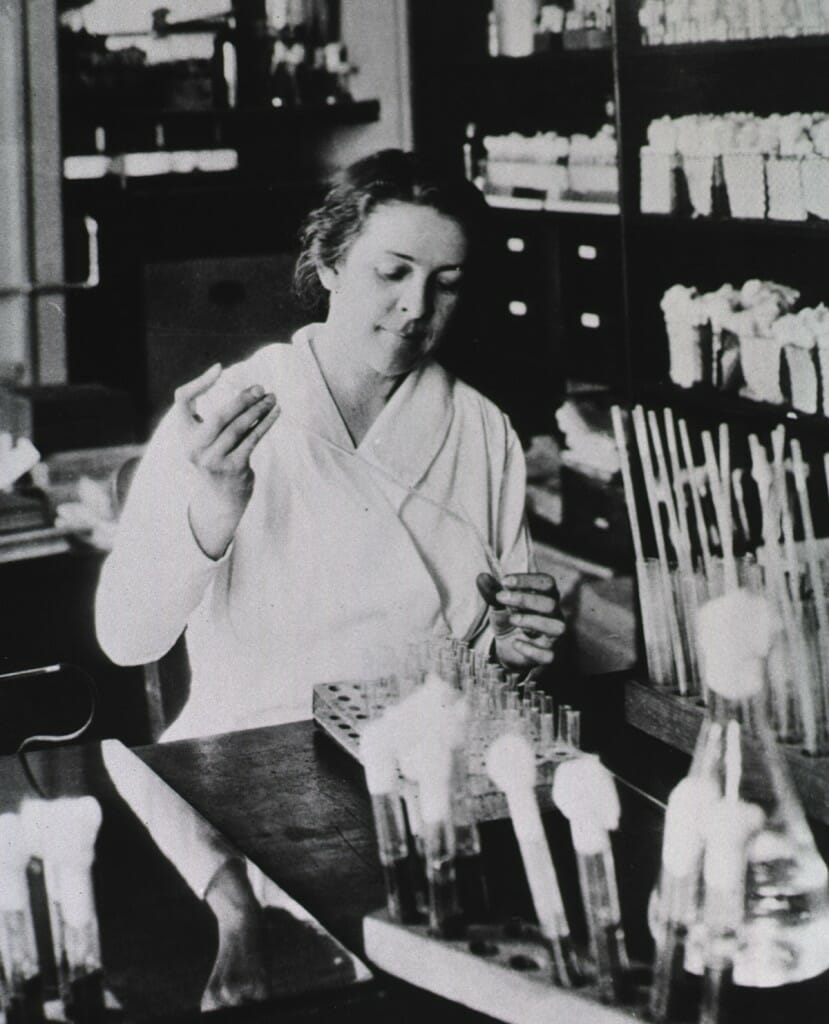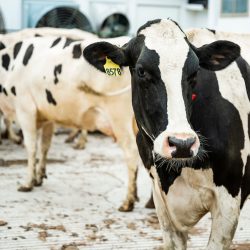Alice Evans
Alice Catherine Evans MS1910 knew that she was right. She stayed the course, her doubters eventually came around, and, in time, she was credited with making one of the most important contributions to public health in the 20th century.
Evans identified a bacterial infection in cows — and passed on to humans through drinking raw milk — that caused brucellosis, or undulant fever, an infectious disease characterized by high temperature and painful joints. Her findings led to pasteurization, ensuring that the milk that we drink today is safe.

Alice Evans is one of many impressive Badgers featured in the Wisconsin Alumni Association’s Alumni Park. To discover their stories, visit alumnipark.com. National Institutes of Health
She cut a rare figure in 1909, when she became the first-ever female recipient of a graduate scholarship in bacteriology at the University of Wisconsin. After studying under UW professors including Elmer McCollum, who discovered vitamins A, B, and D, she moved on to the U.S. Department of Agriculture. When news broke that a woman was joining their ranks to research the bac- teriology of milk and cheese, Evans said, her coworkers “almost fell off their chairs.”
Evans published a paper with her brucellosis findings in 1918, and the naysayers came out in force. Her fellow scientists dismissed the notion that a woman — and one without a PhD, no less — could make such a discovery. They scoffed at the idea that similar bacteria could cause disease in both animals and humans. And despite threats to the nation’s food supply, the dairy industry lobbied against her ideas. The skeptics shared the view, Evans said, “that if these organisms were closely related, some other bacteriologist would have noted it.”
But she held firm. In the late 1920s, male scientists confirmed her findings, and in the 1930s, milk pasteurization became mandatory.
In a cruel twist, Evans herself was infected with undulant fever in 1922, and the illness, which she experienced periodically for years, kept her from attending the meeting where she was elected the first female president of the Society of American Bacteriologists.
For one who had faced so much professional and personal adversity, Evans remained remarkably optimistic. “The course that was open for my ship to sail was on the whole gratifying,” she wrote in her memoirs. “The going was rough at times, [but] there were stretches of clear sailing, too.”
Published in the Spring 2018 issue


Comments
No comments posted yet.